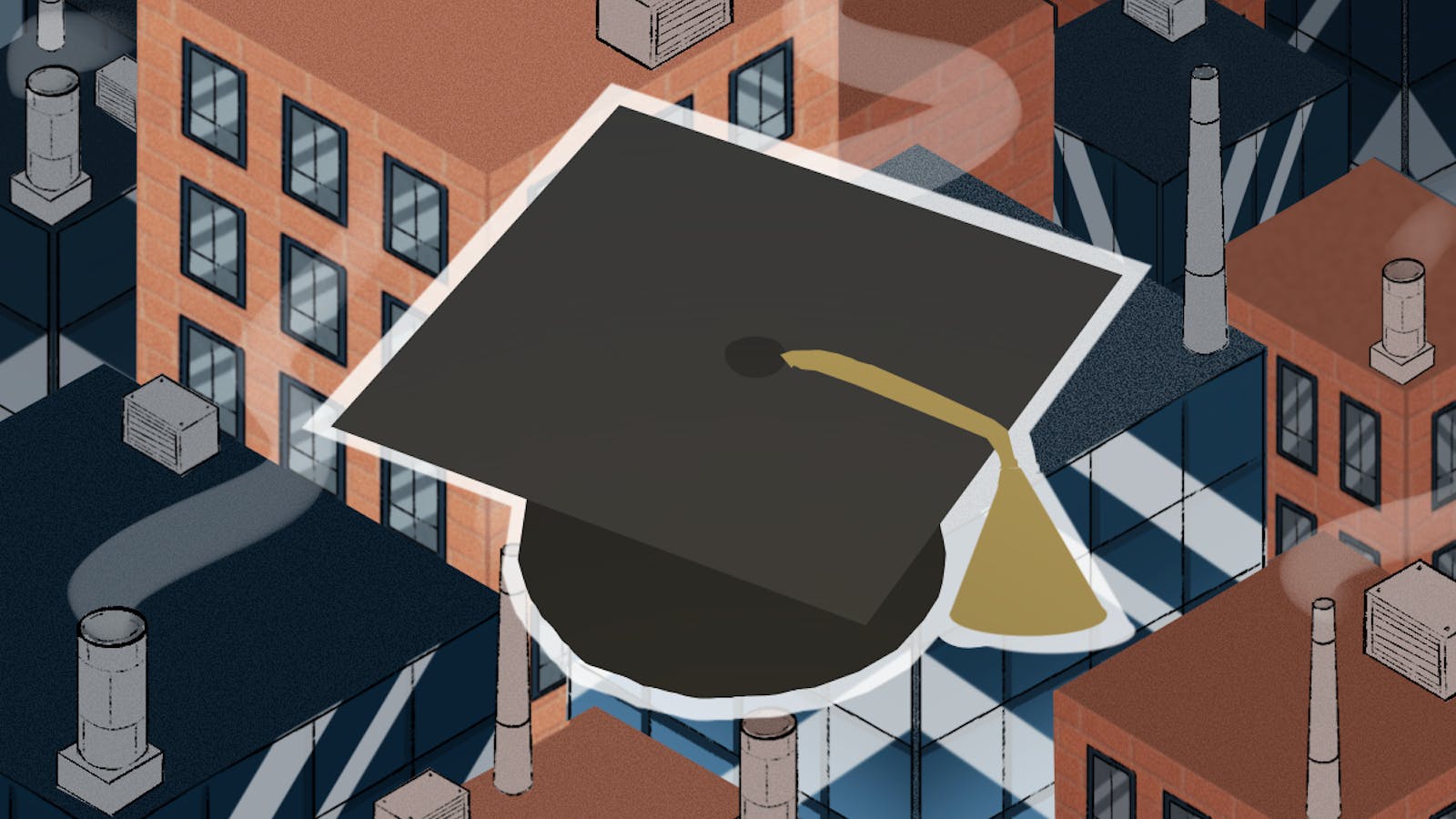After graduating in May with a degree in economics, ASU alum Amaar Syed spent eight hours a day for 45 days applying to about 1,000 jobs until he secured an offer.
“I was hanging out, but I was not on vacation — I was on my computer all day sending out applications, interviews, video interviews, all of that,” he said.
Syed’s painstaking job hunt mirrors a nationwide trend of more recent graduates competing for the same spots. Handshake, an online career site geared toward college students, released its Class of 2025 report showing job postings on the site decreased by 15% in the past year, while applicants increased by 30%.
“Just based on the unemployment rate as a marker of conditions, recent graduates are facing the toughest job market since the post-pandemic year 2021,” said Lee McPheters, the director of the University’s JPMorgan Chase Economic Outlook Center, in a statement. “The main trend we are seeing so far is not that there are massive layoffs like you would expect in recession, but the number of job openings is smaller than even a couple of years ago.”
Labor market outcomes also vary by major, according to the latest data from the Federal Reserve. Alumni holding degrees in accounting, nursing and civil engineering enjoy unemployment rates between 1% to 2%. However, it’s quadrupled in fields such as communications and political science, and it reaches more than 9% for anthropology majors.
A tough job market is also why political science alum Vishnu Raghavan opted for graduate school at Georgetown University after applying unsuccessfully to over 150 government, business and marketing jobs in 2022.
“I love political science … but unfortunately, there’s a lot of competition to get a job in these degrees,” Raghavan said. “I knew that I needed to have some other skill to get me a job than just having a policy or history background.”
Limited jobs also drove Melanie Buathier — who graduated from the University last year with degrees in forensic science and biology — to enroll in graduate school in the first place.
“I always thought that I would just do my bachelor’s and that was it, so I never even bothered to look into graduate school until my last semester, partly because the job market in forensics is so limited,” Buathier said. “Any position that opens up has hundreds of applicants, and it is incredibly competitive, and my heart wasn’t in it enough to be willing to compete for those positions.”
READ MORE: Many ASU students change their major due to job market, workload
Even jobs in the food service industry that do not require a higher education background — long seen as friendly to entry-level workers — can be hard to nab for recent graduates.
Olivia Warkins, a May 2025 graduate who started working part time as a server at the Gilbert House Restaurant in March, said it took two months of applying every day to even land an interview.
“I feel like I got pretty lucky because I had applied to the Gilbert House, where I work now, like the day that job posting came up,” she said. “I think that helped a lot.”
Warkins applied to a total of 25 service jobs, scoring interviews with just two.
“I think it definitely has to do with the economic downturn we’re experiencing right now, and a lot of companies, even food service companies, would rather just keep on the employees that they have and give them more hours, instead of putting the time and resources into training new people,” Warkins said.
Even after finishing graduate school in 2025, Raghavan applied unsuccessfully to 300 jobs before landing one in June as a product coordinator and research analyst at CompQsoft, an information technology company based in Houston. He attributes his ability to get a better role in the 2025 job market to the energy bar business he designed through the Founders Lab for his Barrett, The Honors College thesis and building skills outside of his major.
READ MORE: How helpful is Barrett in helping students pursue graduate school?
However, for ASU alumni like Andrew Aldous, who graduated in May with a degree in civil engineering, the job search was “almost deceptively easy.” Aldous applied to 12 to 15 jobs and received two offers after a handful of interviews.
“I was told that (what) set me apart was simply that I really wanted a job, like it was very clear that I wanted to work, and I was excited to go work in this field,” he said.
According to the Federal Reserve’s latest data, the unemployment rate for civil engineering graduates sits at 1%, tied for the third lowest out of the degrees listed. Aldous said while he faced stiff competition from the hundreds of other University civil engineering students for internships, it was mostly because interns are a “time and money sink” for companies rather than an indicator that there was not work available.
“There’s a shortage of people in the civil engineering field, so the internships were incredibly competitive, but the actual job market was not,” he said.
Getting in diverse work experience early can set up students for success later on, according to Raghavan, the political science graduate.
“Your summers cannot just be about going home and partying or going home and just relaxing,” Raghavan said. “I love to do that. It’s fun, but when you’re in college, you have to get serious.”
Edited by Senna James, George Headley and Katrina Michalak.
Reach the reporter at mosmonbe@asu.edu and follow @miaosmonbekov on X.
Like The State Press on Facebook and follow @statepress on X.
Mia OsmonbekovSenior Reporter
Mia Osmonbekov is a senior reporter. She previously reported for Arizona Capitol Times, Cronkite News DC, La Voz del Interior and PolitiFact. She is in her 7th semester with The State Press working previously as the opinion editor and assignment editor.
Continue supporting student journalism and donate to The State Press today.

